My question is indicated in the title: What is the relation between delay of a digital FIR filter and step response of it?
Is the delay equal to the stablization time of the step response of the FIR?
You can easily see the relationship between delay and step response of an FIR filter if you recognise that the step response is the integral of the impulse response. All linear phase FIR filters are symmetric, so the peak of the impulse response will be the centre tap (for an even order), so this will be the middle of the step response, which is the delay of the filter. To see that this only depends on the filter order and the condition of symmetry see below.
Different responses. Same delay. The delay is the sample delay to the middle tap (NT/2). (or 1/2 way between the two for an odd order).
4.8kHz passband 10th order FIR impulse response:
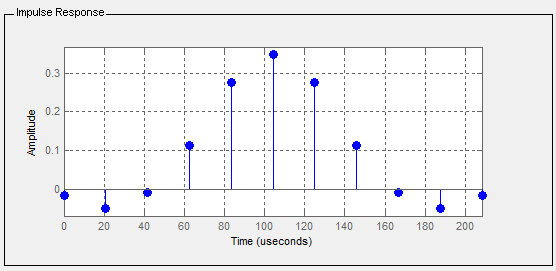
9.6kHz passband 10th order FIR impulse response:
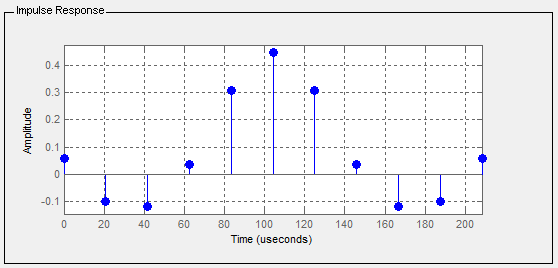
4.8kHz passband 10th order FIR Step response:
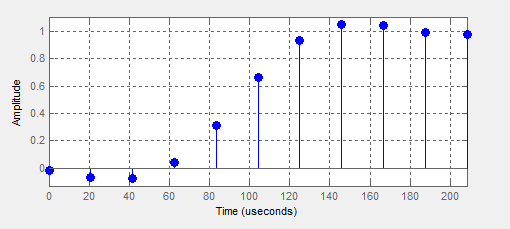
9.6kHz passband 10th order FIR Step response:
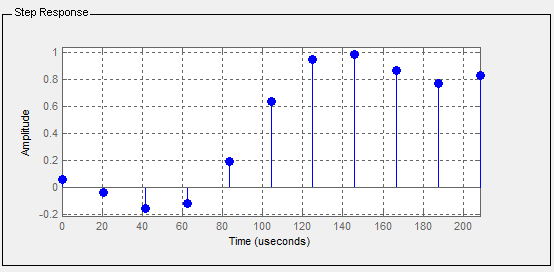
For completeness here are the Mag/phase plots:
4.8kHz passband 10th order FIR Mag/Phase:
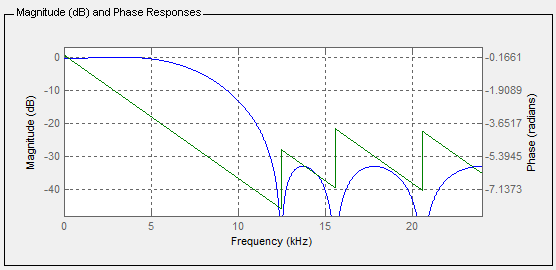
9.6kHz passband 10th order FIR Mag/Phase:
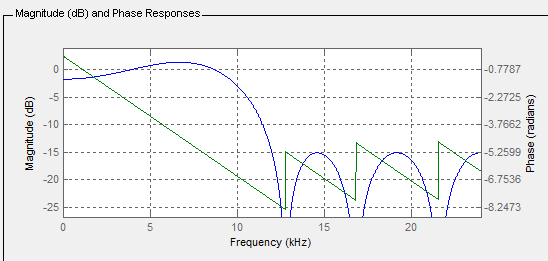
No. For a symmetric FIR filter, the delay is related ONLY to the width of the filter, and has zip to do with the transfer function. A high pass filter of width 5 and cutoff pi/4 with have the same delay as a width 5 low pass filter with cutoff pi/42.